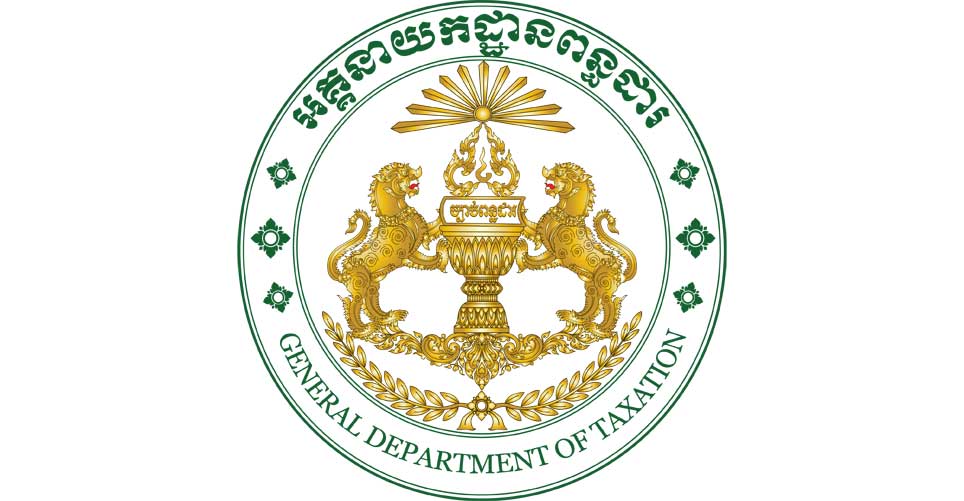Issue Description
The General Department of Taxation (GDT) continues to register considerable success in its drive towards formalising the Kingdom’s taxation system, as evidenced by the strong year-on-year increase in tax revenues that far exceed annual GDP growth. The GDT collected a total of USD 3.4 billion in taxes in 2022, an almost 24% increase compared to 2021. While this formalisation has been effective in improving the efficiencies of the tax regime, throughout this transition phase, it has often proved challenging for many businesses operating in Cambodia to ensure that their tax obligations have been appropriately met.
These challenges are most apparent for businesses that have been operating since the period in which Cambodia’s taxation system was less structured and full compliance was less systematic. During this time, businesses were often unaware or uncertain that they may have had underpaid the required amount of tax, rather than intentionally attempting to evade what they owed. Many of the businesses that were operating during this period of limited enforcement went on to pursue full compliance with all subsequent legal obligations.
Taking this into account, businesses experienced severe reassessments of their liabilities from this period. Long-established companies discovered that their tax liabilities were being calculated from a point much earlier than when compliance was the norm, and were therefore found to have substantially underpaid their tax. Considering additional monthly interest and fines were also imposed on top of the reassessed taxes, many businesses struggled to manage this unexpected financial burden as they sought to rectify their historical non-compliance. The monthly interest and fines applied amounted significantly and, in some cases, even exceeded the underpaid tax itself.
EuroCham recognised that a well-functioning taxation system is a necessity for strong and sustainable economic development, and the corresponding benefits associated with such tax systems can often reduce the costs of doing business. Taking this into account, it can be argued that the companies that contributed the greatest to Cambodia’s strong economic progress by operating here for the longest period, were being overwhelmingly impacted by punitive measures for their non-compliance during a time when this was accepted.
This created an uneven distribution of the tax burden on businesses that have been responsible for ongoing employment opportunities, skills development, tax revenue and a positive corporate environment. Contrarily, businesses that have established themselves since the formalisation, were able to enter the market with full knowledge of their legal and tax expectations, reducing the opportunities of inadvertently underpaying their obligations, while benefiting from the improved state of the Kingdom.
Despite these past challenges, more recent developments have been welcomed by EuroCham. Through the issuing of Prakas No.217 on Tax Amnesty in March 2022, the GDT offered an incentive for local companies to comply with outstanding tax returns in March 2022.
This is similar to what is done in other countries. To overcome similar issues relating to non-compliance, tax administrations provide taxpayers with an opportunity to voluntary disclose previous tax shortfalls so that they receive a reduced punishment, providing that this is done prior to the notification that an audit is required. This encourages previous non-compliant taxpayers to come forward to correct their tax liabilities under specific circumstances.
Importantly, this differs from an amnesty period as it is not time sensitive and taxpayers who voluntarily disclose are still required to pay more than if they were already fully compliant, however they receive a less severe punishment than those that do not disclose but are identified through auditing. Within ASEAN, such voluntary disclosure programmes are in effect in Singapore and Malaysia as a method to encourage taxpayers to correct irregularities and recover missing revenue. While in Indonesia, following a successful nine-month amnesty period in 2016, a voluntary disclosure programme operated until June 2019, with lower tax rates applied for those that voluntarily report, otherwise a heavy penalty of 200% of their tax assessment will apply if identified through an investigation.
Impact on business
While the GDT has made excellent progress in increasing public revenues and formalising the Kingdom’s taxation regime, the methods employed can at times be particularly burdensome for companies seeking full compliance during this transition. Many of these companies accept that they may have underpaid their tax during the period of lax enforcement and are therefore taking steps to reconcile what is owed, though the punitive monthly interest and fines is significantly impacting on their operations.
If long-established businesses are required to pay a tax notification with additional interest and fines, much larger than what they had initially anticipated, the uncertainty may cause these businesses to reevaluate their future investment or expansion decisions, or even the Cambodian market. Similarly, these businesses are likely to become uncompetitive and may be forced to close their operations, resulting in unemployment and loss of tax revenue. This would be particularly disappointing as Cambodia would lose businesses that are well-experienced in operating here and understand the market better than most new entrants as they have remained through the more challenging times to facilitate the growth of the economy.
Implementing a voluntary disclosure programme not only benefits the taxpayer with a reduced financial obligation, but it allows governments to secure missing revenue through a less resource intensive administrative process than if conducting their own audit, while levelling the playing field for all compliant taxpayers. In Cambodia, this would allow the GDT to refocus their remaining resources on stronger detection of those that continue to intentionally evade their tax obligations. When communicated effectively, this would encourage greater compliance, increase the willingness to disclose and reduce overall tax evasion as all taxpayers would be aware that the risk of detection has increased considerably.
Recommendation
- Continue offering voluntary disclosure options to taxpayers for previous tax irregularities prior to an audit notification being issued.
Recognising that the GDT already acknowledges the benefits of offering taxpayers an opportunity to become compliant, EuroCham respectfully recommends that the GDT continue offering ongoing voluntary disclosure programmes for all taxpayers to correct previous tax irregularities. By doing so, this would reflect the realities of earlier compliance with Cambodia’s taxation system and take into consideration the contribution that long- established businesses have made to the overall development of Cambodia.
The terms of such programme should take a balanced approach between providing sufficient incentives for those that were previously non-compliant to come forward within a specified timeframe, while not rewarding or encouraging such conduct in the first place, and this should be applied consistently for all taxpayers. This will increase future rates of compliance through greater awareness, while reinforcing the behaviour of compliant taxpayers.
Royal government of Cambodia
Initiative from Eurocham: EuroCham recommends to continue offering voluntary disclosure options to tax payers for previous tax irregularities prior to an audit notification being issued in the 2024 Edition of the White Book (Recommendation No. 73).

During a meeting between The General Department of Taxation and The European Chamber of Commerce of Cambodia and The American Chamber of Commerce on the 5th October 2023, the General Department of Taxation replied that the GDT has previously provided tax amnesty back in 2017 to company with voluntary disclosure. Although back in the past, despite the amnesty, some companies still refuse to step in and fulfil their tax obligations. The GDT took note of this request and will report and seek instruction from the Ministry of Economy and Finance.
You can find the minutes of the meeting here.

Prakas No. 071 MEF.P.GDT, signed on January 30th, amends Prakas 217. This Prakas, titled “Incentives for the Voluntary Correction of Tax Declarations,” applies to self-assessing taxpayers who wish to amend previously submitted tax declarations due to oversight or unintentional errors. Taxpayers have until June 30, 2024, to submit their corrections.
You can find the Prakas No. 071 HERE and more detailed explanation from the Tax committee by clicking on this LINK.
National Counterparts

The General Department of Taxation
Contributors

Mr. Chum Socheat

